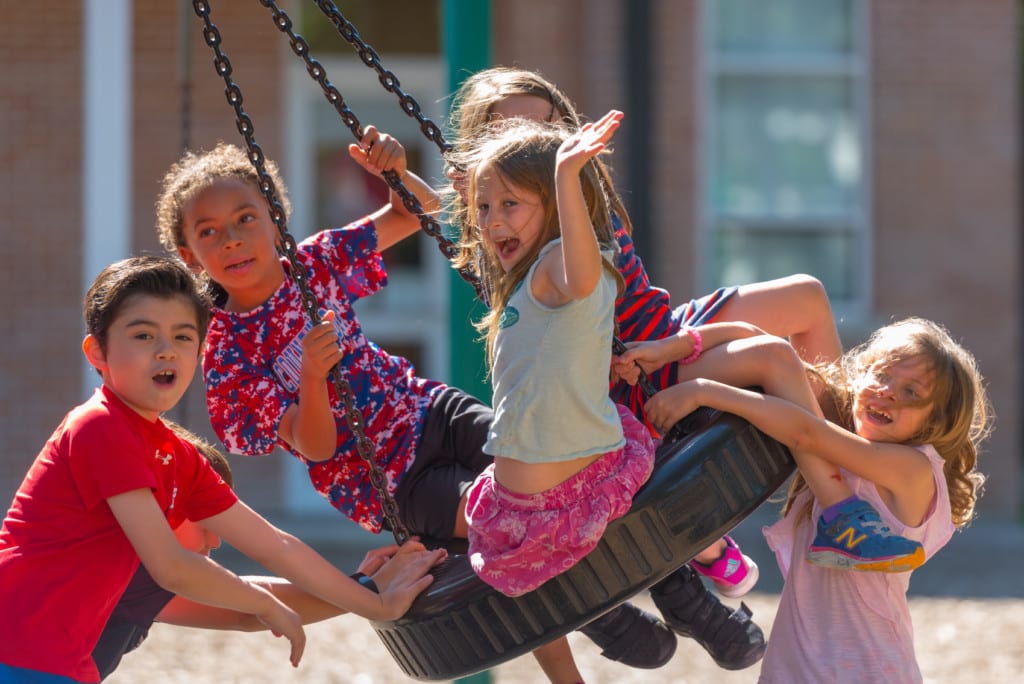Disclosure :: This post is sponsored by Metairie Park Country Day and was written by Country Day Lower School Principal, Lilian Mullane.
Give Them the Tools: Coaching Kids Through the Journey of Making Friends
Friends can bring joy into your day and they can be one of the biggest sources of stress in your life.2 Making friends can be hard for many youngsters,  learning how to make and sustain good friends harder still.
learning how to make and sustain good friends harder still.
Friendfluence
Social skills learned through childhood friendships play an important role in the way we develop as adults; Carla Flora calls it friendfluence.1 An old proverb picks up that theme: “Tell me who your friends are and I’ll tell you who you are.” What seems carefree can be really high stakes!
Finding Their Way
All children want to belong and yet not all children are equally facile in the world of making friends, let alone good friends. A child’s disposition may be gregarious, or it may be cautious. There are children who are well liked but do not seem to have any close buddies. Sometimes the alpha child with an entourage of friends is not always the best friend to have. And we’ve all known painfully shy adults who, as children, were pushed way too early to “come out of their shells.”
Whether a child feels more comfortable in a large circle of friends, prefers a single friendship, or prefers at times to be alone, it’s important that both socially outgoing and socially reserved children feel secure and comfortable in their social “skin.”
Navigating the Friendship Sea
They say that friendships are made one at a time. Some friends fall into our laps, and sometimes we need to experience several friends before we find a good match. As teachers, we know that each child needs time and opportunity to recognize and practice the less direct “how to’s” of social relationships: recognizing that boundaries of personal space (theirs and others) are fluid, knowing how to successfully participate in the give and take of conversation, learning how to be a loyal friend and how to bounce back from disappointment when a friend is hurtful or fickle.
Coaching Kids Through the Journey
In Lower School, where most of the students and teachers stay in the same group for 2-3 years, teachers and school counselor are closely attuned to children’s social strengths and vulnerabilities. Just as they scaffold a challenging math concept, adults coach student’s safely through conflict or disappointment so that eventually, they can constructively handle the emotional dynamics of friendships on their own.
As children grow, so will their friendships. Learning to be the friend you want for yourself can be a lifelong process. Feeling confident that you have the tools to make and sustain friends: priceless!
What do you remember about making friends as a child? What are some important lessons your kids have learned along the way?
1 Flora, C. (2013), Friendfluence: The Surprising Ways Friends Make Us Who We Are. (NY: Doubleday).
2 Flora, C. (2013). The Mixed Bag Buddy (And Other Friendship Conundrums). Psychology Today. Jan. 2, 2013.















